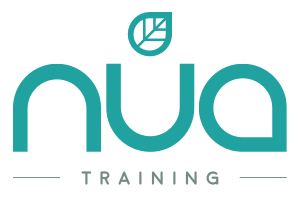
Right now, for global businesses, retaining talented employees is everything, and nowhere more so than in Data teams. After a challenging couple of years, many employees are now questioning their work-life balance or fulfilment in their current role. Coupled with fatigue and lack of support, leaders are quitting their jobs resulting in what’s been dubbed as “The Great Resignation.” This in turn is creating a hyper-competitive job market.
In order to succeed, data teams need to understand how best to motivate, develop and above all, keep their best people – and the key to talent retention is engagement. If employees are engaged, then they are less likely to leave.
Building engagement with data staff, especially in a hybrid work world, can be a challenge but this is where coaching can help. In fact, when done properly, coaching can change the ‘Great Resignation into the ‘The Great Retention’ – and here’s how…
Coaching in the workplace is win win
Coaching has a very positive impact on both business performance and employee engagement. It can be used to attract new hires and retain and develop existing talent. By retaining and nurturing the skills and development of existing staff in data teams, businesses make employees feel invested in and valued, whilst also opening up mobility within the organisation, which in turn drives business growth. It makes sense that when employees are empowered to thrive, organizations thrive with them.
Businesses cannot afford to ignore the power of coaching
The cost of replacing an employee is substantial, ranging from 50% to 200% of their annual salary. Using 100% as a benchmark, an organisation with an average salary of £50,000 potentially faces that amount for employees who leave. Whether your turnover rate is 3% or 20%, that kind of cost is simply unsustainable.
Coaching can be used to attract and retain employees
The value of coaching is widely acknowledged by employees. 90% of employees not currently being coached say they would engage with an employer’s coaching program if offered the opportunity to do so and 75% would expect to find it a very or extremely valuable experience if they did.
These figures are backed by the Randstad 2022 Workmonitor research, which revealed 88% of workers surveyed around the world would be interested in learning and development opportunities if their employer offered it, with 84% interested in speaking to a professional career coach if offered the chance. Furthermore, half of those surveyed said they would rank talking to a work coach about finding a better balance between their work and personal lives as a top-three benefit an employer could offer. In fact, it was the top choice!
Among businesses that already have coaching programmes in place, the top three benefits of coaching are clear: increased engagement, increased confidence, and the promotion of talent mobility. Employees who engage with coaching appreciate the opportunity, view it as valuable and hope to continue. Even those not currently engaged with a coaching program clearly want to do so. Therefore, it is easy to see how coaching can be used as both a retention tool for existing employees and an attraction tool for new hires.
Certified external coaches get the best results
Whilst direct line managers or leaders can informally step into the role of a coach, it is certified external coaches that deliver the best results for both the employee and ultimately the business. An external coach can provide specialist skills and experience, with no other agenda and absolute confidentiality.
There is no denying the benefits of a coaching culture – an environment where coaching is the norm is often one where employees and leaders are engaged, motivated and productive. Data teams that work with a certified external coach at the heart of their business, are better placed to attract, develop and retain talented employees in what is becoming an increasingly competitive job market.
According to a Human Capital Institute (HCI) and International Coach Federation (ICF) study, 54% of companies that are classified as ‘high performing’ have a strong coaching culture. This figure drops to only 29% among organisations without one.
Without a doubt, an employee-centric coaching culture derived from a certified external coach is the way forward for data teams and organisations that want to thrive.
To find out more about how coaching can help your team, contact: tony@nuatraining.co.uk
